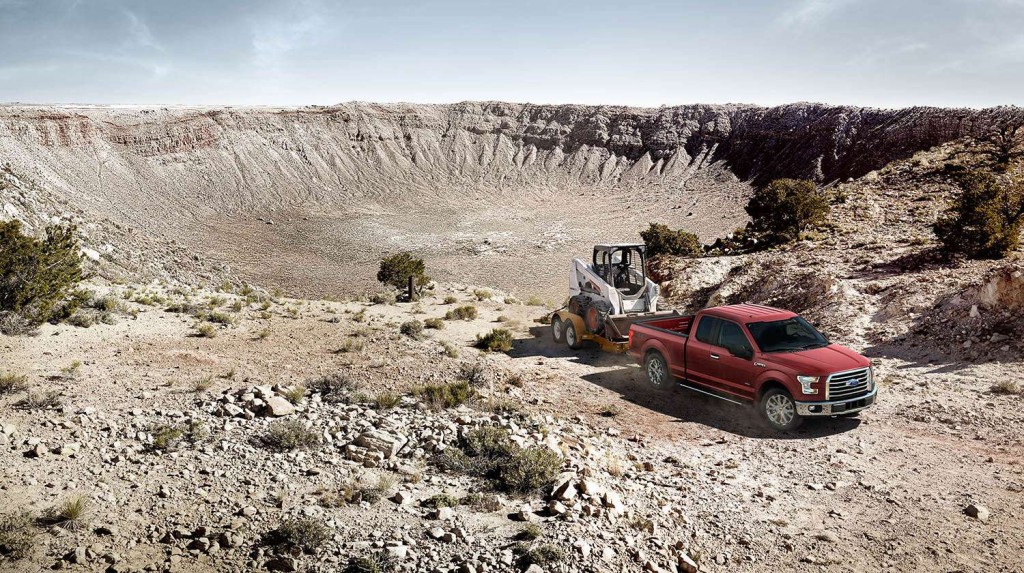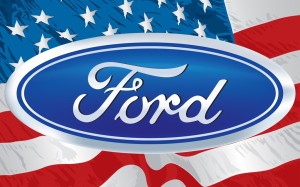By: Chris Warren
One of the hardest parts of running any business is knowing the sweet spot between leaving a good thing alone and changing to keep up with the times. No company can succeed by completely ignoring one or the other. The danger is that tradition vs. change is a business minefield. History is loaded with both good and bad examples of how this concept was handled. Most of them are bad. A few are remarkable in that they were even proposed at all. That is the position the Ford Motor Company places itself in with the 2015 F-150 pickup truck.
To fully appreciate the magnitude of this grand experiment, one must first understand the importance of the F-150 to Ford. In a word, it’s everything. It’s been not only the best selling truck for over four decades, but also the best selling vehicle of any class for almost as long. You heard that right: The best selling car in the United States, is a truck.
What Ford is planning is a complete changeover for the F-150 to use a lot of aluminum, rivets and high tech glue to hold parts together, and a fleet of brand new engine designs. The end goal is to improve fuel economy while keeping the “Built Ford Tough” image. There is a huge risk that so many changes so quickly will result in a lot of reliability problems and rejection by customers. High gas milage is nice, but trucks must above all be able to work hard, haul heavy things, push snow, and pull trailers. Their owners tend to beat the hell out of them. Light and dainty is for hybrids.

About 40% of the entire North American truck market is claimed by this one single model. There is an old joke in automotive circles that Ford is a truck company that occasionally cranks out a few cars just for kicks. In continuous production since 1948, the Ford F-series pedigree transcends generations. By any measure it’s an American legend. Why mess with a legend?
The problem with legends is that they tend to get complacent. This happens a lot not just with products but also with entertainers, athletes, and people who are very successful in business and feel their place is secure. That is, until someone comes along and one-ups them. They might have become jaded, tired, or lazy. They may have quit trying. The exact reason doesn’t matter. The end result is always the same: They became irrelevant. Irrelevance is what kills a legend. No matter good you are, no matter how great your ideas or depth of your knowledge, none if it matters if no one cares. Hanging one’s hat on past successes and making no effort to build on them will almost assure irrelevance.
Ford was not motivated solely by a daring spirit when they made such a huge leap with their legendary flagship vehicle. New fuel milage standards are coming by 2020, and eventually all trucks will have to go on a diet. What makes Ford’s move so gutsy is they could have come up with a new, limited market truck to test the changes on first, or they could have waited for another manufacturer to do it and copied them. Instead, Ford took the one product that has largest, most loyal following and made all the changes at once. There is a life lesson buried in the next chapter of the Ford F-150 story.
My first full time job was as a call center service rep at the phone company. It paid well, had good benefits, and a stable schedule. My coworkers were pleasant; the boss was reasonable. It was not a mindless task. We had to know billing and order procedures in two separate and complex computer systems and were expected to do what was needed to shepherd every issue through to the end while acting professionally towards difficult and sometimes abusive customers. It required both technical and people skills. I got good at it; I was soon helping train new representatives and was often consulted to solve difficult problems. It felt good to be respected and valuable.

Things began incrementally changing. Management took away our autonomy and authority to resolve customer issues; we had to follow an exactly prescribed procedure and there was not much tolerance for drifting off the plan even when the plan was not the best path to resolution for the customer. We went from being a true service-focused group to an inbound sales force that dealt with customer service issues as an afterthought. A lot of the people I started with in the company moved on to other positions. One day it hit me: I had gone from respected team member to cube farm drone. By then I had been doing the same job for seven and half years. I looked around and wondered how dumb could I be not to have seen the place going downhill right in front of me? Why did I put up with it for so long?
Unlike the automotive industry, there is no team of engineers and marketing spin doctors making sure I am the trendy thing everyone wants. I have to be my own legendary product. Had I adopted an “F-150 attitude” I would not have just sat there in my cube bullshitting myself into thinking my past successes were enough to insulate me from the changes that made my job untenable. I should have been positioning myself as the one every else is trying to keep up with. Instead, I went in panic mode, scrambling to escape from an unfulfilling job that was only going to get worse. The whole situation was totally avoidable and totally my fault.
I eventually found my way to another, better job in the company. This time I was not going to let myself become irrelevant. Less than two years into it I was actively looking to move on. I ended up with something far better than what I expected, and it came at a perfect time: Not long after I left, my old workgroup was also transformed from a cheerful crew of thoughtful problem solvers to scatterbrained checklist followers. They were ultimately absorbed back into the very call center I was running from in the first place. The mess had come full circle, but this time I was paying attention and dodged a huge bullet.
Of course you can play it safe, keep doing what you’re doing with no changes, nervously hoping your sanity stays intact and the boss still wants you five or ten or more years from now. Or you can wait for someone else to take the big leap, wait to see how it goes and then make your move. Or you can be the one who goes first. The connection between the Ford F-150 and how we should be managing our careers is as huge and imposing as the truck itself. Take a hint from the Ford Motor Company: No one will care who did it second.